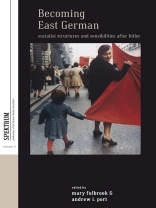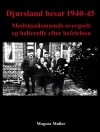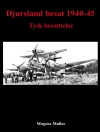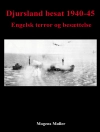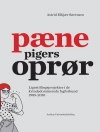For roughly the first decade after the demise of the GDR, professional and popular interpretations of East German history concentrated primarily on forms of power and repression, as well as on dissent and resistance to communist rule. Socio-cultural approaches have increasingly shown that a single-minded emphasis on repression and coercion fails to address a number of important historical issues, including those related to the subjective experiences of those who lived under communist regimes. With that in mind, the essays in this volume explore significant physical and psychological aspects of life in the GDR, such as health and diet, leisure and dining, memories of the Nazi past, as well as identity, sports, and experiences of everyday humiliation. Situating the GDR within a broader historical context, they open up new ways of interpreting life behind the Iron Curtain – while providing a devastating critique of misleading mainstream scholarship, which continues to portray the GDR in the restrictive terms of totalitarian theory.
قائمة المحتويات
List of Abbreviations
Preface
Introduction: The Banalities of East German Historiography
Andrew Port
Part I: Memory and Identity after Nazism
Chapter 1. East Germans in a Post-Nazi State: Communities of Experience, Connection, and Identification
Mary Fulbrook
Chapter 2. Divisive Unity: The Politics of Cultural Nationalism during the First German Writers’ Congress of October 1947
Andreas Agocs
Chapter 3. Communicating History: The Archived Letters and Memories of “The Red Orchestra”
Joanne Sayner
Chapter 4. Remembered Change and Changes of Remembrance: East German Narratives of Antifascist Conversion
Christiane Wienand
Part II: Health, Food, and Embodied Citizens
Chapter 5. Perceptions of Health after World War II: Heart Disease and Risk Factors in East and West Germany, 1945-75
Jeannette Madarász
Chapter 6. Socialism Fights the Proletarian Disease: East German Efforts to Overcome Tuberculosis in a Cold War Context
Donna Harsch
Chapter 7. The Slim Imperative: Discourses and Cultures of Dieting in the German Democratic Republic, 1949-1990
Neula Kerr-Boyle
Chapter 8. Luxury Dining in the Later Years of the German Democratic Republic
Paul Freedman
Part III: Constraints and Conformity: Friends, Foes, and Disciplinary Practices
Chapter 9. Expectations, Predispositions, and the Paradox of Working-Class Behavior in Nazi Germany and the German Democratic Republic
Andrew Port
Chapter 10. Israel as Friend and Foe: Shaping East German Society through Freund- and Feindbilder
David Tompkins
Chapter 11. Humiliation as a Weapon within the Party: Fictional and Personal Accounts
Phil Leask
Chapter 12. Playing the Game: Football and Everyday Life in the Honecker Era
Alan Mc Dougall
Afterword: Structures and Subjectivities in GDR History
Mary Fulbrook
List of Contributors
عن المؤلف
Andrew I. Port is an Associate Professor of history at Wayne State University in Detroit, and Editor-in-Chief of Central European History. He is the recipient of a Marie Curie FCFP Senior Fellowship at the Freiburg Institute for Advanced Studies (FRIAS) and the DAAD Prize for Distinguished Scholarship in German and European Studies. His first book, Conflict and Stability in the German Democratic Republic (2007), appeared in German translation as Die Rätselhafte Stabilität der DDR (2010), and his current project looks at German reactions to genocide in other parts of the world since 1945.
